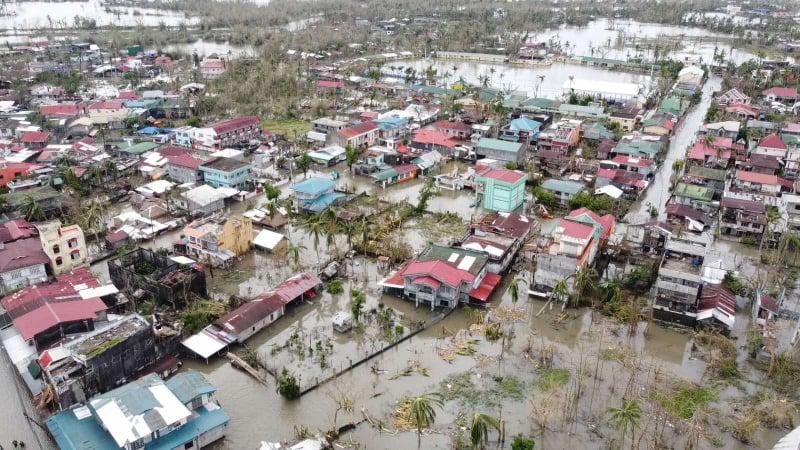Philippines has highest world risk index anew in 2024 report

The Philippines has for the third straight year registered the highest world risk index (WRI) in the 2024 edition of the World Risk Report, which covers 193 countries including all member-states of the United Nations and 99% of the world population.
In the report by the Institute for International Law of Peace and Armed Conflict of the Ruhr-University Bochum in Denmark, countries were assessed on their levels of exposure, vulnerability, susceptibility, lack of coping capacities, and lack of adaptive capacities to crises including extreme natural disasters, conflicts, pandemics and wars.
The model for the world risk index was developed with the United Nations University Institute for Environment and Human Security.
The top 10 countries with the highest WRI are:
- Philippines - 46.91
- Indonesia - 41.13
- India - 40.96
- Colombia - 37.81
- Mexico - 35.93
- Myanmar - 35.85
- Mozambique - 34.44
- Russian Federation - 28.12
- Bangladesh - 27.73
- Pakistan - 27.02


The Philippines in 2024 scored 58.07 in the lack of coping capabilities and 56.10 in the lack of adaptive capabilities.
The Philippines also topped the 2022 and 2023 editions of the report with WRI of 46.82 and 46.86 respectively.
The countries with the lowest WRI are:
- Monaco - 0.18
- Andorra - 0.28
- San Marino - 0.35
- Luxembourg - 0.61
- Sao Tome and Principe - 0.67
- Liechtenstein - 0.71
- Belarus - 0.76
- Singapore - 0.80
- Qatar - 0.94
- Bahrain - 0.94
According to the report, WRI is calculated per country in terms of exposure and vulnerability.
"Exposure represents the extent to which populations are exposed to and burdened by the impacts of earthquakes, tsunamis, coastal and riverine floodings, cyclones, droughts, and sea level rise," the report said.
It said vulnerability is composed of three dimensions: susceptibility, coping, and adaptation.
Susceptibility refers to the structural characteristics and conditions of a society that increase the overall likelihood that populations will suffer damage from extreme natural events and enter a disaster situation.
Coping involves various capacities and actions of societies to counter the negative impacts of natural hazards and climate change through direct actions and available resources in the form of formal or informal activities, and to minimize damage in the immediate aftermath of an event.
Adaptation refers to long-term processes and strategies to achieve anticipatory changes in societal structures and systems to counter, mitigate, or purposefully avoid future adverse impacts.
"At present, however, the hotspots remain in the Americas and Asia, as can be seen in the group of ten countries with the highest risk scores: the Philippines, Indonesia, India, Colombia, Mexico, Myanmar, Mozambique, Russia, Bangladesh, and Pakistan," the report said.
"These countries have very complex risk profiles due to the combination of diverse exposures and high intensities, as well as higher vulnerabilities," it added.
The report also referred to multiple crises which "jeopardize livelihoods and future opportunities but also have a significant impact on (mental) health."
"During the coronavirus pandemic, psychosocial and economic stress increased worldwide. In countries that were affected by extreme natural events at the same time, these burdens intensified," the report said.
"One example is the Philippines, which was hit by 22 tropical cyclones during the COVID-19 pandemic, including Typhoon Goni [Super Typhoon Rolly in late October 2020], one of the strongest storms ever recorded," it added.
The report cited the hundreds of thousands of destroyed homes, overcrowded evacuation centers, and the resulting increase in COVID-19 cases which it said "not only led to a dramatic increase in humanitarian needs, but also had a negative impact on the mental health of the population." —NB/BM, GMA Integrated News




